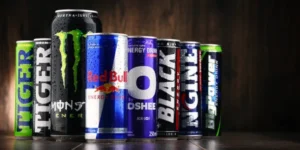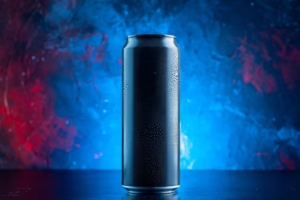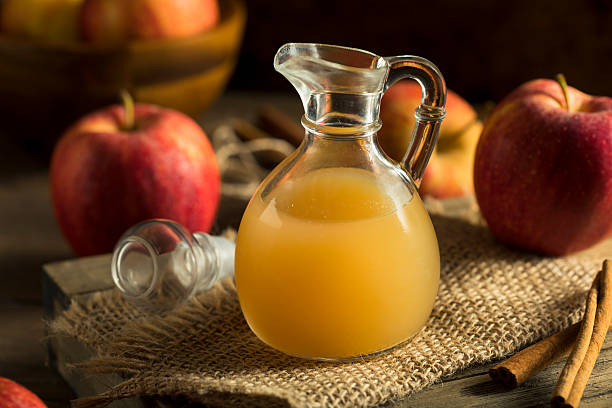Energy drinks are a popular choice for weightlifters looking to enhance their performance and focus during intense gym sessions. Whether you’re aiming to crush a heavy deadlift, push through a grueling bench press, or maintain endurance during high-rep sets, the right energy drink can provide the boost you need. This guide explores the best energy drinks for weightlifting, highlighting their benefits, ingredients, and how they can elevate your workouts.
Why Choose Energy Drinks for Weightlifting?
Energy drinks are designed to enhance physical and mental performance. They provide:
- Increased Energy: Caffeine and other stimulants help fight fatigue.
- Improved Focus: Boosts concentration for better mind-muscle connection.
- Enhanced Endurance: Carbohydrates and electrolytes replenish energy stores and hydration.
- Faster Recovery: Some drinks include amino acids to support muscle repair.
Top Energy Drinks for Weightlifting
1. C4 Energy
- Best For: Pre-workout boost and explosive energy.
- Key Ingredients:
- 200mg caffeine for energy.
- Beta-alanine to reduce fatigue and improve endurance.
- Citrulline for enhanced blood flow.
- Why It’s Great: C4 Energy combines the benefits of a pre-workout and energy drink, making it perfect for intense lifting sessions.
2. Bang Energy
- Best For: High caffeine and zero sugar.
- Key Ingredients:
- 300mg caffeine for sustained energy.
- CoQ10 and BCAAs for muscle support.
- Electrolytes for hydration.
- Why It’s Great: Bang delivers a massive energy boost without sugar, making it ideal for extended workouts.
3. Reign Total Body Fuel
- Best For: All-in-one performance enhancement.
- Key Ingredients:
- 300mg caffeine for focus and endurance.
- BCAAs for muscle recovery.
- Electrolytes for hydration.
- Why It’s Great: Reign combines energy, recovery, and hydration, supporting you through the toughest gym sessions.
4. Alani Nu Energy
- Best For: Balanced energy and clean ingredients.
- Key Ingredients:
- 200mg caffeine for a moderate boost.
- Zero sugar and only 10 calories per can.
- Biotin and B vitamins for added health benefits.
- Why It’s Great: Alani Nu is a favorite among those who prefer a lighter energy drink with fewer stimulants.
5. Monster Energy Zero Ultra
- Best For: Smooth energy with a great taste.
- Key Ingredients:
- 140mg caffeine for moderate energy.
- Zero sugar and low calorie.
- B vitamins for energy metabolism.
- Why It’s Great: Monster Zero Ultra provides a steady energy boost without overwhelming your system, making it perfect for light to moderate lifting days.
6. Ghost Energy
- Best For: High-energy workouts and mental focus.
- Key Ingredients:
- 200mg caffeine for sustained energy.
- Alpha-GPC for focus and cognitive function.
- Natural flavors and no artificial colors.
- Why It’s Great: Ghost Energy is loved for its clean ingredients and brain-boosting effects, keeping you focused and energized throughout your session.
7. Red Bull Sugar-Free
- Best For: Quick energy without sugar.
- Key Ingredients:
- 80mg caffeine for a light energy boost.
- Taurine for endurance and recovery.
- B vitamins for metabolism support.
- Why It’s Great: Red Bull Sugar-Free is a reliable classic for those who want a smaller caffeine dose before hitting the gym.
8. Xtend Energy On-the-Go
- Best For: Recovery-focused energy.
- Key Ingredients:
- 125mg caffeine for mild stimulation.
- 7g BCAAs for muscle recovery.

- Electrolytes for hydration.
- Why It’s Great: Xtend Energy is ideal for weightlifters who want a recovery boost along with their pre-workout energy.
What to Look for in an Energy Drink for Weightlifting
- Caffeine Content
- Low to moderate (80–200mg): Best for beginners or evening workouts.
- High (300mg): Suitable for experienced lifters or intense sessions.
- Amino Acids
- Ingredients like BCAAs support muscle recovery and reduce soreness.
- Electrolytes
- Essential for staying hydrated, especially during sweaty workouts.
- No Sugar or Low Sugar
- Avoid sugar crashes by opting for sugar-free or low-sugar options.
- Added Benefits
- Look for additional nutrients like vitamins, CoQ10, or beta-alanine to enhance performance and recovery.
When and How to Use Energy Drinks
- Pre-Workout
- Drink 20–30 minutes before your session to allow time for the caffeine and ingredients to take effect.
- Intra-Workout
- Sip during your workout for sustained energy, especially during longer sessions.
- Post-Workout
- Choose drinks with BCAAs or electrolytes to aid recovery and rehydration.
Tips for Using Energy Drinks Safely
- Know Your Limits
- Avoid consuming more than 400mg of caffeine per day to prevent side effects like jitteriness or insomnia.
- Stay Hydrated
- Pair energy drinks with water to avoid dehydration.
- Read Labels
- Check for hidden sugars, artificial ingredients, or excessive stimulants.
- Cycle Usage
- Don’t rely on energy drinks for every workout to prevent tolerance buildup.
Alternatives to Energy Drinks
If energy drinks aren’t your style, consider these alternatives for a pre-workout boost:
- Coffee: A simple, natural source of caffeine.
- Green Tea: Provides a milder caffeine boost with antioxidants.
- Homemade Smoothies: Blend fruits, spinach, and protein for natural energy and nutrients.
- Electrolyte Drinks: Hydrate without stimulants.

Conclusion: Fuel Your Lifts with the Right Energy Drink
Energy drinks can be a game-changer for weightlifting, providing the energy, focus, and endurance needed to crush your workouts. Whether you prefer a high-caffeine boost like Bang or a balanced option like Alani Nu, there’s a drink to match your fitness goals. Remember to choose wisely, use them responsibly, and pair them with a solid training routine for the best results.
-
Goldstein, E. R., et al. (2010). International society of sports nutrition position stand: caffeine and performance. Journal of the International Society of Sports Nutrition, 7(1), 5.
-
Spriet, L. L. (2014). Exercise and sport performance with low doses of caffeine. Applied Physiology, Nutrition, and Metabolism, 39(9), 1019–1027.
-
Sawka, M. N., et al. (2007). Exercise and fluid replacement: ACSM position stand. Medicine & Science in Sports & Exercise, 39(2), 377–390.
-
Jackman, S. R., et al. (2010). Branched-chain amino acid ingestion can ameliorate soreness from eccentric exercise. Applied Physiology, Nutrition, and Metabolism, 35(4), 470–477.
-
European Food Safety Authority (EFSA). (2015). Scientific Opinion on the safety of caffeine. EFSA Journal, 13(5), 4102.
-
Wolfe, R. R. (2017). Branched-chain amino acids and muscle protein synthesis in humans: myth or reality?. Journal of the International Society of Sports Nutrition, 14(1), 30.
-
U.S. Food and Drug Administration (FDA). (2022). Spilling the Beans: How Much Caffeine is Too Much?






